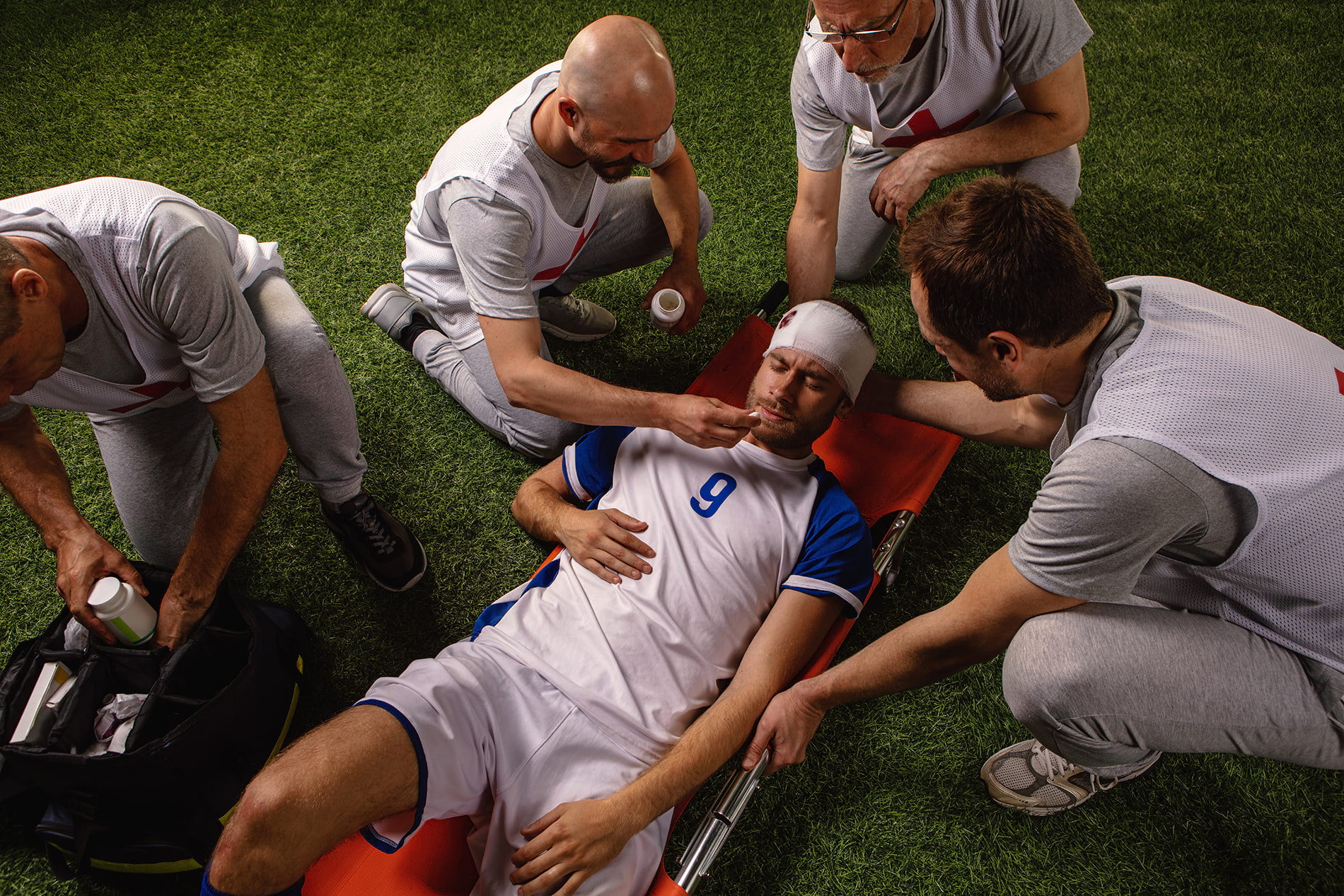Sports Injury
A sports injury is an injury that can occur during an organized team sport and/or an individual activity, such as tennis, swimming, track, football, baseball, soccer, lacrosse, or auto racing.
A sports injury can affect you mentally and emotionally, as well as physically. Especially for someone who has invested so much of their time and energy into reaching athletic goals. An injury can leave you without the usual outlet you used to cope with stress. It can also leave you frustrated, irritated, and wondering why this happened to you. For these reasons, treating the psychological factors of a sports-related injury is just as important as treating the physical injury. Sports psychology aims to provide athletes with the support and treatment needed to navigate through recovery.
Recreational Injury
Recreational injuries are injures that may happen just while having fun rollerblading, jumping on a trampoline, going down a slide, or riding a bike.
The Leading Sports and Recreational Activities that Cause Brain Injury, Concussion and Chronic Pain are:
- Cycling
- Boxing
- Football
- Wrestling
- Baseball and softball
- Basketball
- Water sports, including diving, scuba diving, surfing, swimming, water polo, water skiing, and water tubing
- Powered recreational vehicles, including ATVs, dune buggies, go-carts, gas-powered scooters, mini bikes, and dirt bikes
- Soccer
- Skateboards and non-powered scooters
- Fitness, exercise, and health club participation
- Winter sports, including skiing, sledding, snowboarding, and snowmobiling
- Horseback riding
- Gymnastics, dance, and cheerleading
- Karate
- >Golf
- Roller and ice hockey
- Tennis
- Racquetball
- Other ball sports
- Trampolines
- Rugby and lacrosse
- Roller- and inline skating
- Ice-skating.
Please keep in mind that the above list does not include recreational activities that caused injury but didn’t lead to a doctor or hospital visit. Also, some activities and how often injuries occur may vary based on time of year and recreational trends in your area.
Sports Injury Pain
Pain is like a warning light in your car. It is an alert that something is wrong in the body. Acute pain is an early warning signal; it helps you to react and respond. One example is, the acute pain of burning your hand tells you to pull it from the heat source to avoid further burning. You felt the acute pain and acted on it.
The emotional part of acute pain is anxiety, which is adaptive and helps you to act. Think fight or flight. Chronic pain, however, serves no purpose. We are not built to deal with chronic pain on our own, and being in pain for too long can cause depression. Chronic pain is also called post-traumatic pain, since the source of the pain happened at a much earlier time. Since chronic pain affects you emotionally, psychologically, and physically, successful treatment may need to be more complex than usual.
Concussions in Sports and Recreational Injuries
Over the past few years, concussions in sports have dominated the news and become a major public concern, with football concussions receiving the most attention. The Center for Disease Control and Prevention estimates that each year in the United States, there are 3.8 million concussions in sports, exercise, and other recreational activities. When the brain is given enough time to heal and precautions have been taken, symptoms of a concussion can disappear within a few weeks of injury. However, if you still have symptoms after many weeks, you may have Post-Concussion Syndrome (PCS). Unfortunately, for student athletes, concussion symptoms can affect both academics and social functioning.



